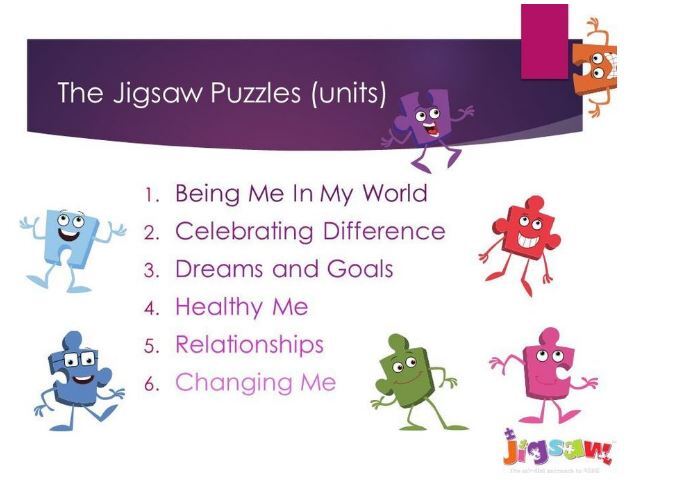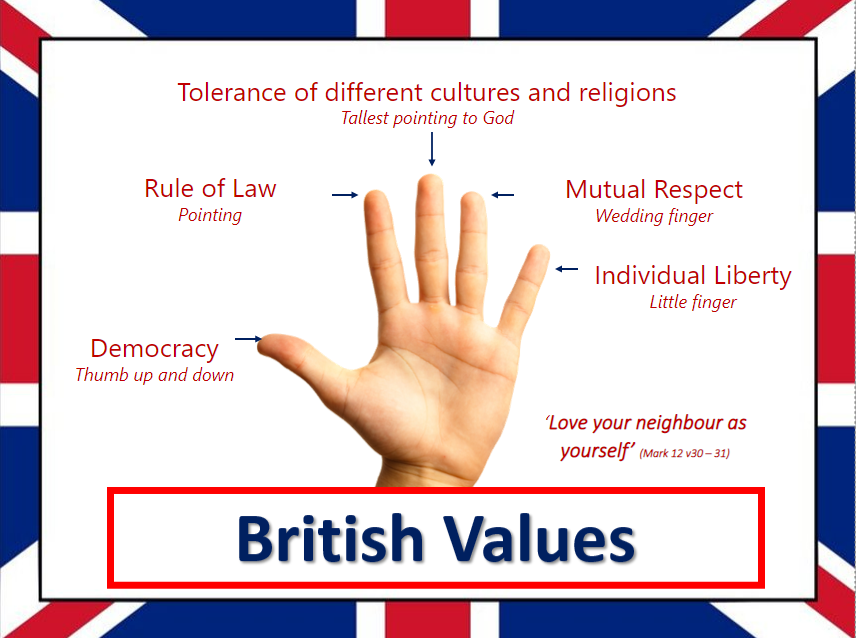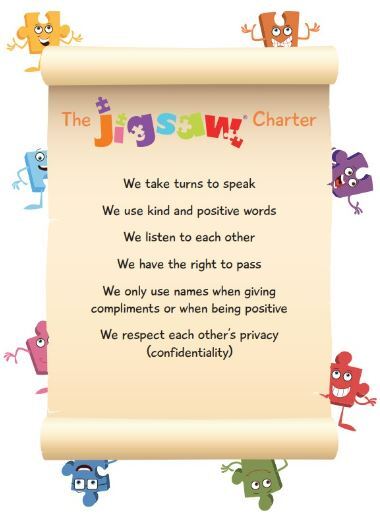- Home
- School Life
- Subjects
- Personal Social Health Education (PSHE)
Personal Social Health Education (PSHE)
Purpose of study
PSHE Education (Personal, Social, Health and Economic Education) is a planned programme of learning through which children and young people acquire the knowledge, understanding and skills they need to successfully manage their lives – now and in the future. As part of a whole-school approach, PSHE Education develops the qualities and attributes pupils need to thrive as individuals, family members and members of society.
What do schools have to teach in PSHE Education?
According to the National Curriculum, every school needs to have a broad and balanced curriculum that:
• promotes the spiritual, moral, social, cultural, mental and physical development of pupils at the school;
• prepares pupils at the school for the opportunities, responsibilities and experiences of later life;
• promotes British values.
From September 2020, primary schools in England also need to teach Relationships and Health Education as compulsory subjects and the Department for Education strongly recommends this should also include age-appropriate Sex Education.
Schools also have statutory responsibilities to safeguard their pupils (Keeping Children Safe in Education, DfE, 2019) and to uphold the Equality Act (2010).
Jigsaw
At Upton St James we use a whole school PSHE scheme called Jigsaw. This combines PSHE, emotional literacy, mindfulness, social skills and spiritual development.
Jigsaw is designed as a whole school approach, with all year groups working on the same theme (Puzzle) at the same time. This enables each Puzzle to start with an introductory assembly, generating a whole school focus for adults and children alike. Jigsaw aims to help children know and value who they really are and how they relate to other people in this ever-changing world.
There are six Puzzles (half-term units of work) each with six Pieces (lessons). Every year group studies the same Puzzle at the same time, allowing for whole school themes. Each year group is taught one lesson per week and all lessons are delivered in an age and stage-appropriate way so that they meet the children’s needs.
The different puzzle pieces over the year are:

Relationships and Sex Education (RSE)
The Jigsaw unit 'Changing me' is covered by all year groups at Upton St James. This unit includes Sex and Relationship Education. Effective SRE can make a significant contribution to the development of the personal skills needed by pupils if they are to establish and maintain positive relationships. It also enables children and young people to make responsible and informed decisions about their health and well-being. Please see the RSE policy below which outlines what is taught and when. Each year we send out a separate letter to each year group with the SRE content and the opportunity to discuss any questions or concerns. Our RSE policy has been carefully created in consultation with parents and carers.
We are mindful that parents and carers do have the legal right to withdraw their children from the sex part of RSE (relationships teaching and learning is statutory). Should a parent or carer wis to do so, we ask that they firstly request a meeting with the Headteacher to discuss any concerns.
PSHE and Protected Characteristics
The Equality Act came into force from October 2010 providing a modern, single legal framework with clear, streamlined law to more effectively tackle disadvantage and discrimination. It stated that it is against the law (UK) to discriminate against anyone because of:
• age
• being or becoming a transsexual person
• being married or in a civil partnership
• being pregnant or on maternity leave
• disability
• race including colour, nationality, ethnic or national origin
• religion, belief or lack of religion/belief
• sex
• sexual orientation
These are called ‘protected characteristics’, and schools have a duty of care to protect all pupils from discrimination or harassment. Jigsaw PSHE helps schools understand and promote these characteristics more fully and in a childcentred way. The Puzzle ‘Celebrating Difference’ focuses on similarities and differences and teaches about diversity, such as disability, racism, power, friendships, and conflict; children learn to accept everyone’s right to ‘difference’, and most year groups explore the concept of ‘normal’; bullying – what it is and what it isn’t, including cyber and homophobic bullying – is an important aspect of this Puzzle.
The Relationships Puzzle also has a wide focus, looking at diverse topics such as families, friendships, pets and animals, and love and loss – all of which can help to deliver the vital messages behind the Equalities Act. A vital part of this Puzzle is about safeguarding and keeping children safe; this links to cyber safety and social networking, as well as attraction and assertiveness; children learn how to deal with conflict, their own strengths and self-esteem. They have the chance to explore roles and responsibilities in families, and look at stereotypes. All Jigsaw lessons are delivered in an age- and stage-appropriate way so that they meet children’s needs and can help them understand the wider world. Jigsaw PSHE lessons are aligned to the Equality Act 2010.
We also use the poster below to support children's understanding of the Protected Characteristics:
Jigsaw PSHE and British Values
Jigsaw contributes, as a good PSHE programme should, to the British Values agenda very significantly, both through the direct teaching of information and through the experiential learning children will enjoy.
The 5 strands of the British Values agenda have been mapped across every Puzzle and every Piece (lesson).
We link our whole school assemblies to the Jigsaw Themes and Values being taught and applied through the PSHE curriculum. We are proud of the way we promote emotional wellbeing for all our pupils through our Jigsaw programme which underpins the whole of our curriculum.
For more information about British Values, please see our British Values web page:

Our PSHE Lead is:
Ms Megan Chapple
Intent
At Upton St James CofE Primary (USJ) the intent of our PSHE curriculum is to deliver a curriculum which is accessible to all and that will enable every pupil to ‘rise to their best’ and become healthy, independent and responsible members of society.
Our PSHE education:
-
promotes the spiritual, moral, cultural, mental and physical development of pupils at the school and of society
-
prepares pupils at the school for the opportunities, responsibilities and experiences of later life
-
promotes British values and the protected characteristics
We aim to provide our children with extensive opportunities to learn about rights and responsibilities and appreciate and value what it means to be a member of a diverse society. Our children are encouraged to develop their sense of self-worth by playing a positive role in contributing to school life and the wider community – living out our key scripture ‘Love your neighbour as yourself’ (taken from Mark 12:30-31).
Implementation
At USJ, PSHE is taught using the comprehensive and well-sequenced Jigsaw scheme of work. The USJ PSHE thematic plan is taught on a two-year rolling programme to ensure coverage and pupils record their learning and ideas within individual PSHE books. Sex and relationships (SRE) education is taught in single-year groups. PSHE is taught for one hour per week and each lesson makes explicit links to the British Values (and Protected Characteristics, where appropriate). Each class has their own floor book to record their learning and reflections.

Jigsaw brings together PSHE Education, emotional literacy, mindfulness, social skills and spiritual development. A variety of teaching strategies are used and are mindful of each child’s preferred learning style. Jigsaw is designed as a whole school approach, with all year groups working on the same theme (Puzzle) at the same time. This enables each Puzzle to start with an introductory collective worship, generating a whole school focus for adults and children alike. There are six Puzzles (half-term units of work) each with six Pieces (lessons). Each year group is taught one lesson per week and all lessons are delivered in an adaptive way so that they meet all the children's needs in each class. The expectations of mutual respect is achieved through the Jigsaw Charter, which is set at the beginning of each year and re-capped every lesson.

The Jigsaw Approach is underpinned by mindfulness. Mindfulness is being able to observe your own thoughts and feelings as they happen, in the present moment, applying no judgement. Jigsaw teaches children to understand their thoughts and feelings and through both taught lessons and the Calm Me time exercises, helping to develop their awareness, and their capacity to be mindful human beings. Learning is thus enhanced as emotions are regulated, behaviour managed and calmness generated.

The overarching Jigsaw puzzles, which take place every year are:
Autumn A - Jigsaw unit - Being me in my world
‘Being me in my world’ covers a wide range of topics, including a sense of belonging, welcoming others and being part of a school community, a wider community, and a global community; it also looks at children’s rights and responsibilities, working and socialising with others, and pupil voice.
Autumn B - Jigsaw unit – Celebrating difference
‘Celebrating difference’ focuses on similarities and differences and teaches about diversity, such as disability, racism, power, friendships, and conflict; children learn to accept everyone’s right to ‘difference’, and most year groups explore the concept of ‘normal’; bullying – what it is and what it isn’t, including cyber and homophobic bullying.
Spring A – Jigsaw unit – Dreams and goals
‘Dreams and goals’ aims to help children think about their hopes and dreams, their goals for success, what personal strengths are, and how to overcome challenges, via team work skills and tasks. There is also a focus on enterprise and fundraising. Children learn about experiencing and managing feelings of pride, ambition, disappointment, success; and they get to share their aspirations, the dreams and goals of others in different cultures/countries, and their dreams for the world.
Spring B – Jigsaw unit – Healthy me
‘Healthy me’ covers two main areas of health: Emotional health (relaxation, being safe, friendships, mental health skills, body image, relationships with food, managing stress) and Physical health (eating a balanced diet, physical activity, rest and relaxation, keeping clean, drugs and alcohol, being safe, first aid) in order for children to learn that health is a very broad topic.
Summer A - Jigsaw unit - Relationships
‘Relationships’ has a wide focus, looking at diverse topics such as families, friendships, pets and animals, and love and loss. A vital part of this Puzzle is about safeguarding and keeping children safe; this links to cyber safety and social networking, as well as attraction and assertiveness; children learn how to deal with conflict, their own strengths and self-esteem. They have the chance to explore roles and responsibilities in families, and look at stereotypes.
Summer B - Jigsaw unit – Changing me
‘Changing me’ deals with change of many types, from growing from young to old, becoming a teenager, assertiveness, self-respect and safeguarding. Self and body image, puberty, attraction and accepting change are diverse subjects for children to explore. Each year group thinks about looking ahead, moving year groups or the transition to secondary school.
Impact
At our school we seek to ensure that the PSHE that we teach improves the physical, emotional and social well-being of pupils. Through our PSHE education, we believe we can enhance children’s education and help them to become caring, respectful, aspirational and confident individuals.
It will:
• Give pupils the knowledge and develop the self-esteem, confidence and self-awareness to make informed choices and decisions;
• Encourage and support the development of social awareness;
• Enable pupils to make sense of their own personal and social experiences;
• Promote responsible attitudes towards the maintenance of good physical and mental health, supported by a safe and healthy lifestyle;
• Enable effective interpersonal relationships and develop a caring attitude towards others;
• Encourage a caring attitude towards and responsibility for the environment;
• Help our pupils understand and manage their feelings, build resilience and be independent, curious problem solvers;
• Ensure they understand how society works and the laws, rights and responsibilities involved.